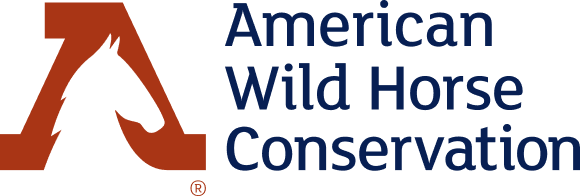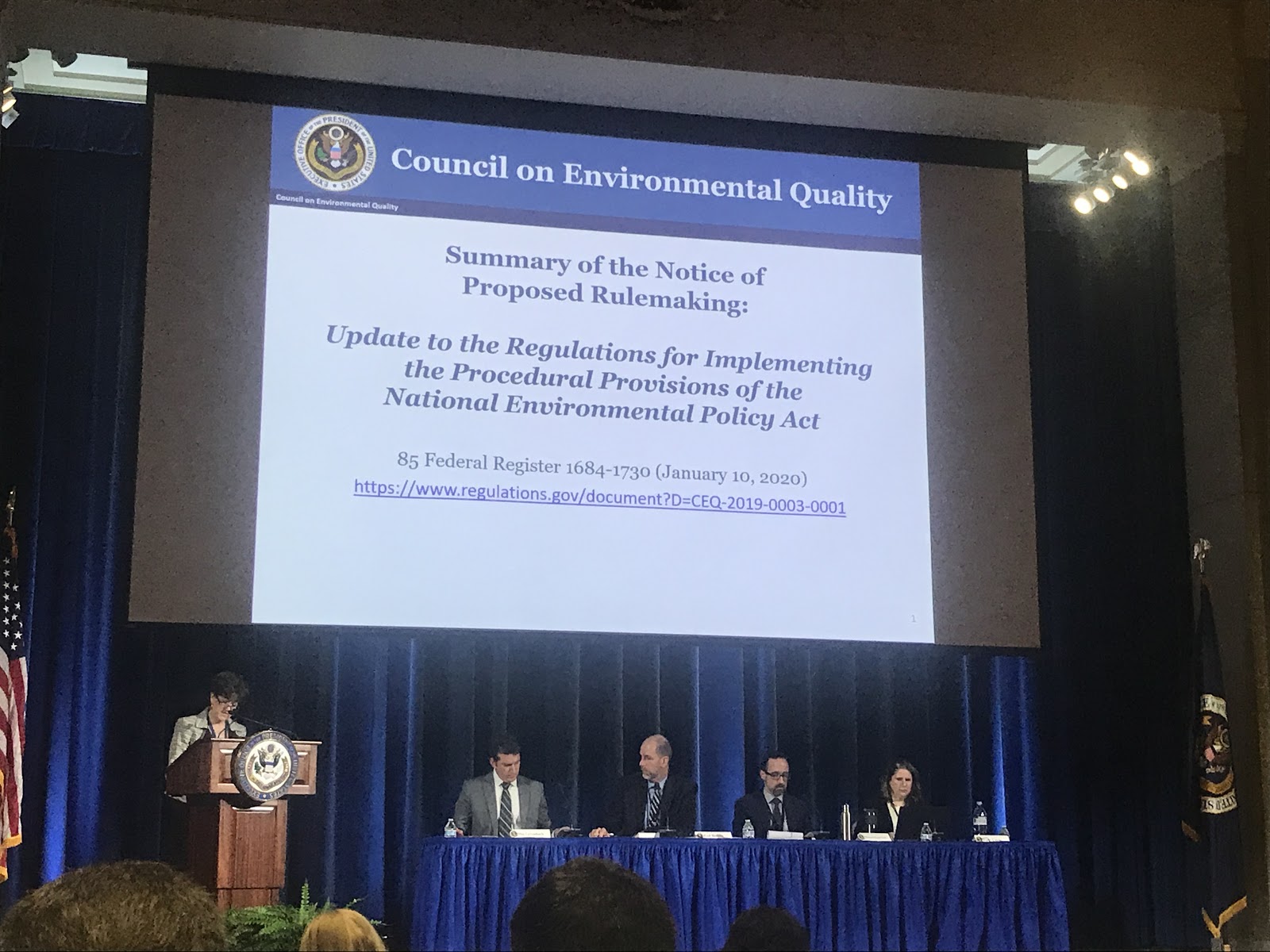(February 25, 2020) Today we attended the Washington, D.C. public hearing for the Council on Environmental Quality’s (CEQ) proposed rulemaking to change the implementing regulations for the National Environmental Policy Act (NEPA). This hearing was the second, and final, public hearing for the public to learn about the changes that CEQ is proposing.
Background
Under the current administration, the goal has been to “streamline” the NEPA process, but unfortunately, that has led to potentially harmful cuts that would largely weaken the original purpose of the statute itself. NEPA, and the implementing regulations, are important to the wild horse issue because the BLM has to follow the standards of NEPA whenever it wants to conduct a roundup or change the way that it manages wild horses and burros in a Herd Management Area. The proposed changes could undermine the power of this environmental review process and make it harder for the public to weigh-in. Back in August of 2018, AWHC submitted comments to the CEQ and explained the potential issues with the Advanced Notice of Proposed Rulemaking. The Rulemaking was a transparent attempt by CEQ and this administration to weaken the NEPA regulations for no reason. If any changes are going to be made, AWHC asked that CEQ instead consider making the environmental review process more robust in order to better protect the human environment rather than weakening the standards in order for the process to be softer on big industry.
Our specific concerns included:
- Public comment periods should remain no less than 30 days and all comments should continue to be published electronically. Wild horse and burro management activities must be formally recognized as a major federal action and explicitly stated as not subject to a categorical exclusion.
- Cumulative impacts must be analyzed in detail during the NEPA process so that each proposed project considers the cumulative impact it will cause to the environment.
- All conflicts of interest standards must remain in place for contractors. The timing of agency actions in the review process must remain the same so that the public maintains a meaningful opportunity to participate in the NEPA process.
- All reasonable alternatives must be considered in detail so that the public can meaningfully participate in the process and so the agency can choose the alternative that is best for the environment.
- At the same time, AWHC also submitted a Freedom of Information Act request aimed at obtaining decision documents related to the Rulemaking. In November 2019, the Council on Environmental Quality provided AWHC with an update on the status of this request. The agency is publishing responsive records to their website on a rolling basis and we will be monitoring the progress.
The Hearing
Today’s hearing began with an opening statement from Mary Neumayr, CEQ Chairman, who left immediately following her statement instead of staying to hear the concerns of American taxpayers. Then the proposed changes were presented to the room, following the same presentation that can be found here. After the brief presentation, the floor was opened to those who were lucky enough to secure one of a limited amount of speakers’ tickets.
Our representative was there listening to the morning session. The comments were largely from people and representatives of NGOs who want to see the environment and wildlife protected from industry. After each person who spoke to the purpose of NEPA, and how these changes are a huge step backward, the room would erupt in applause. There were a few comments about the need to streamline the process to benefit industry, and those comments received a few claps or silence. It was clear that the majority of people in the room wanted to see the environment protected and believed that the proposed changes would only lead to future environmental harm.
We will continue to monitor this situation very closely and as always, bring you the latest as it unfolds.
If you would like to submit comments, you can do so here. Comments are due March 10, 2020.


